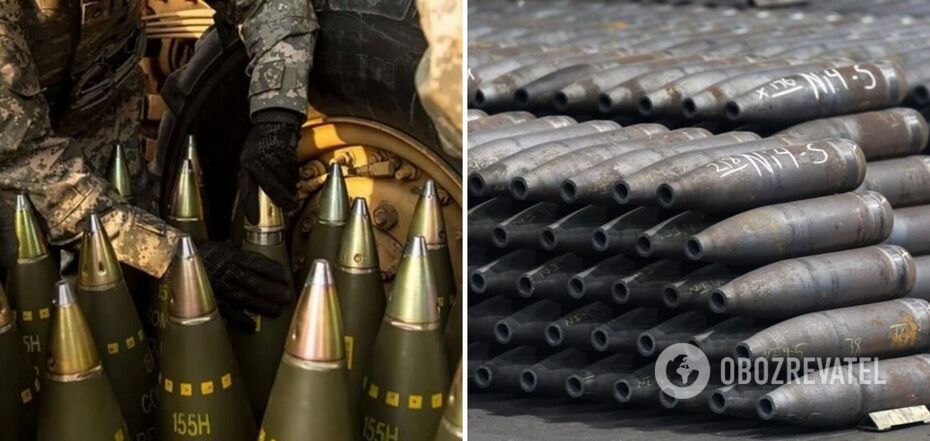War in Ukraine
Russia produces almost three times more artillery shells than the allies of Ukraine – CNN
The aggressor country, the Russian Federation, produces 250,000 shells per month. This figure is almost three times higher than the United States and Europe collectively produce to supply Ukraine.
This was reported by CNN with reference to NATO intelligence data. "Russia produces about 250,000 artillery rounds a month, or about 3 million a year, according to NATO intelligence estimates of Russian defense production," the report says.
At the same time, the United States and Europe together are capable of producing only about 1.2 million rounds of ammunition annually for shipment to Kyiv.
The U.S. military has set a goal of producing 100,000 artillery shells per month by the end of 2025 – less than half of Russia's monthly production – and even this figure is now unattainable since the financing of Ukraine for $60 billion is stalled in Congress.
"We are now in a production war. The outcome of the war in Ukraine depends on how each side is equipped to fight it," a senior NATO official told CNN.
According to officials, Russia is firing about 10,000 shells a day, compared to only 2,000 a day on the Ukrainian side. According to a European intelligence official, the ratio is even worse in some parts of the 600-mile front line.
The ammunition shortage comes at perhaps the most critical time for the Ukrainian war effort since Russia's first invasion of Kyiv in February 2022. U.S. funds for arming Ukraine have dried up, and the Republican opposition in Congress has effectively stopped any further allocations.
The United States and its allies have provided Ukraine with several modern systems, including the M-1 Abrams tank, and Kyiv will soon receive F-16 fighter jets. But military analysts say the war is likely to be won by whoever fires more artillery shells.
"The number one problem we are seeing now is ammunition. It's artillery shells because that's where Russia has a significant production advantage and a significant battlefield advantage," the NATO official said.
According to the NATO representative, Russia operates artillery plants around the clock, seven days a week, in 12-hour shifts. About 3.5 million Russians now work in the defense sector, compared to 2-2.5 million before the war. Russia also imports ammunition: last year, Iran sent at least 300,000 artillery shells, and North Korea provided at least 6,700 ammunition containers containing millions of rounds.
"Russia has put everything it has into the game. Their military machine is working at full capacity," the intelligence official said.
A rough equivalent in the United States would be for President Joe Biden to invoke the Defense Production Act, a U.S. official said, which gives the president the power to order companies to rapidly produce equipment to support the country's national defense.
According to U.S. and Western officials, Russia's military buildup is still not enough to meet its needs, and Western intelligence officials do not expect Russia to make major gains on the battlefield in the short term. According to officials, Russian production capacity also has a limit: Russian factories are likely to peak sometime next year.
But this still far exceeds what the US and Europe are producing for Ukraine – especially without additional US funding.
As a reminder, Czech President Petr Pavel said that Ukraine's partners had raised the entire amount needed to purchase 800,000 artillery shells. The shells will be purchased outside the European Union to counter the aggressor country.
As reported by OBOZ.UA, Norway announced on Thursday, March 7, that it would join the Czech initiative to purchase ammunition for Ukraine from third countries. The country will allocate about 1.6 billion Norwegian kroner ($153 million) for this initiative.
NSDC Secretary Oleksii Danylov emphasized that Ukraine has every right to use weapons created by its military-industrial complex to strike at Russian territory. At the same time, the Defense Forces, according to the agreements, cannot use weapons from partner countries for such strikes.
Only verified information in our Telegram channel OBOZ.UA and Viber . Do not fall for fakes!



























